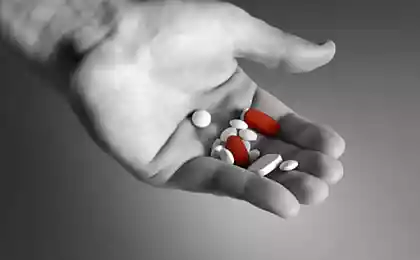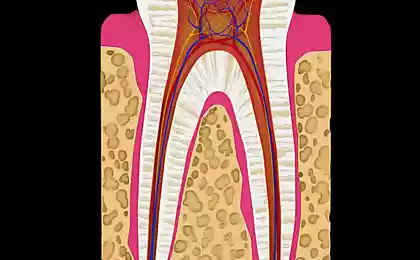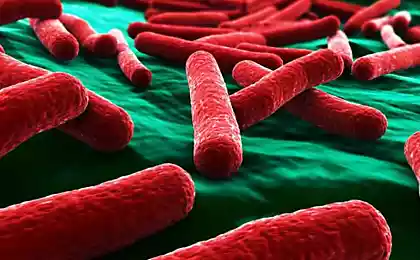238
Antibacterial hand gels: why not? It is forbidden to use, if the skin has ever been...
The world is a terrible thing. All possible surfaces are literally teeming with microorganisms – from harmless bacteria to malicious viruses, fungi and even tiny parasites – and infections are everywhere.
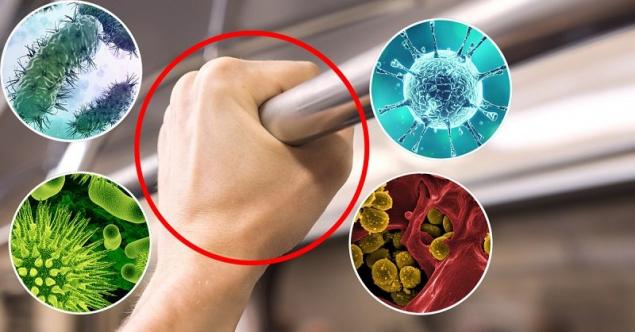
DepositPhotos
For example, about 20% of the world's population are permanent carriers of Staphylococcus aureus. This bacterium can cause a wide range of diseases in humans - from banal acne to deadly pneumonia and meningitis.
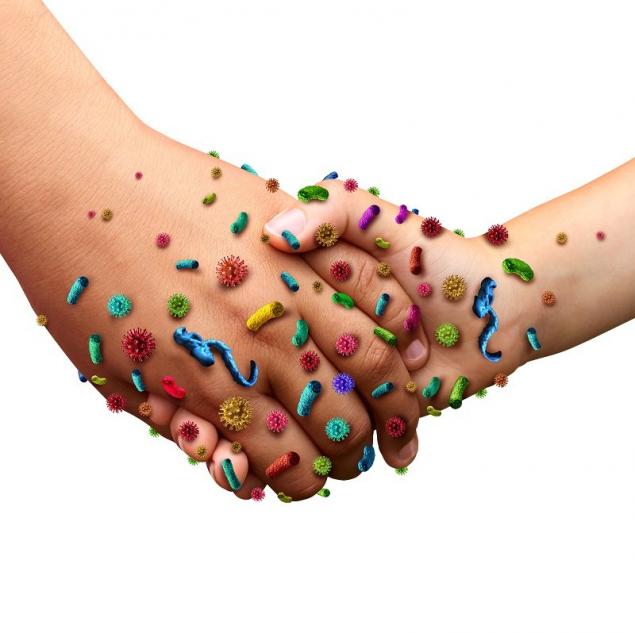
DepositPhotos
So if you have more than five people working in your office, one of them could theoretically infect you with a simple handshake. Or take things dear to the heart: studies have shown that there are 18 times more different pathogens on a smartphone screen than on the rim of the toilet.
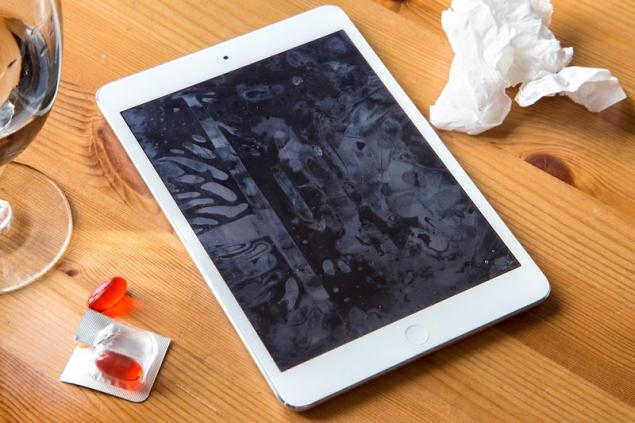
DepositPhotos
Hand washing is one of the most important hygiene issues. Water and soap are not always available. What to do if you stand in line in a cafe or hold on to a handrail in public transport, and in the supermarket you take a cart, the handle of which has been in a thousand hands in a day?
For those who have no time and nowhere to wash their hands, manufacturers have come up with antibacterial gels, or, what is also called, sanitizers. The main antibacterial component in them is most often alcohol. To reduce its negative effect on the skin, natural oils, aloe extract, vitamin E are added.
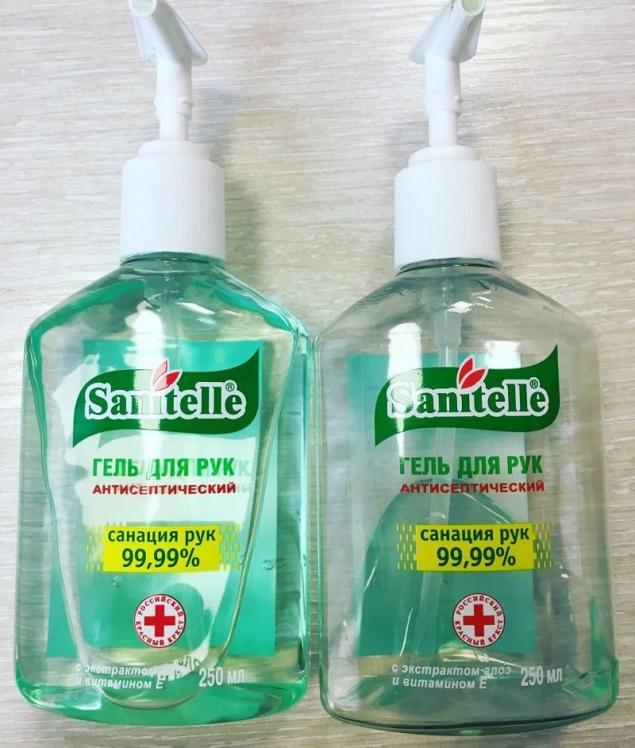
According to the latest surveys, 73% of women use hand cleansers. The reason is simple: a bottle of gel easily finds a place in the smallest purse and allows you to observe personal hygiene, without leaving the table in the cafe, the steering wheel, the seat of the aircraft.
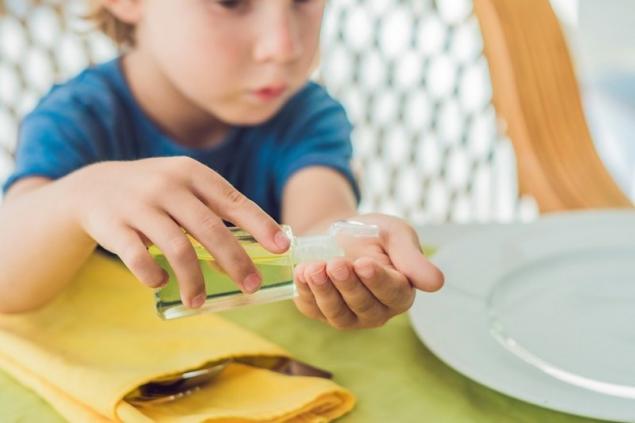
DepositPhotos
But most importantly, manufacturers promise that their products will destroy all known microbes on their hands, and even soften the skin. But it's not that rosy. Many of the substances that save us from microbes are harmful.
For example, phenoxyethanol can cause vomiting and diarrhea in infants. Sodium benzoate and other parabens accumulate in the body and can cause severe allergies and even provoke diabetes.
Daily use of funds with chlorhexidine, one of the most gentle antiseptics, can lead to itching, discoloration of the skin, dermatitis, increased sensitivity to ultraviolet light. And even non-toxic ethyl alcohol dries and irritates the skin.
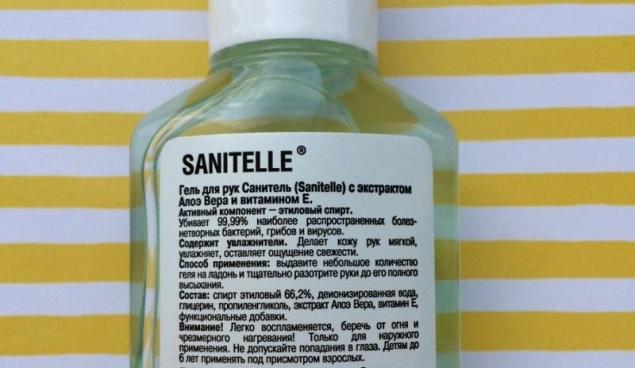
Therefore, for each antiseptic, the standards provide for a concentration that allows him to effectively combat microbes and not harm a person. For example, the alcohol in hand gels should not be more than 68%. The maximum permissible concentration of sodium benzoate is 700-1500 mg / l, parabens - up to 0.4% of the volume of the solution.
Alcohol and antiseptics based on it show the best results when there is no visible dirt on the hands. For example, if you washed your hands and then treated them with an antiseptic. And if the skin remains dust, earth or something greasy, the tool works much worse.
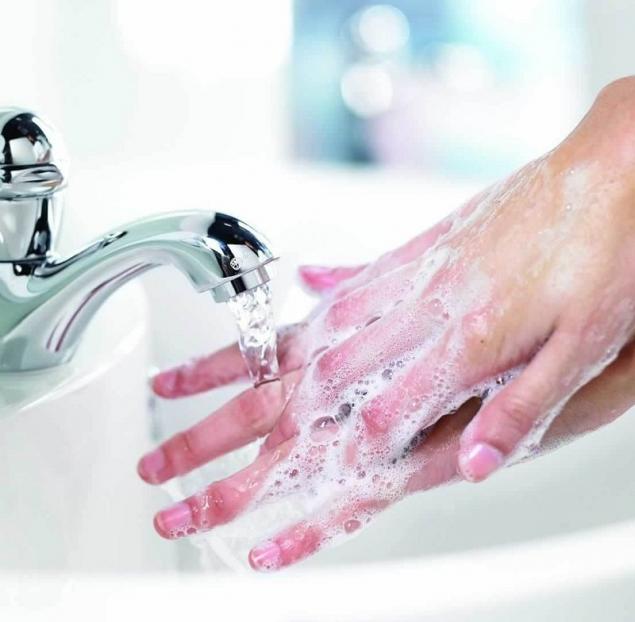
If you wash your hands with soap, hand-drug It won't be necessary. Only professionals need to treat their hands with an antiseptic after washing: doctors and those who work with products.
Everyone else needs to find a sink and regular soap. Water and foam will wash away both bacteria and all sorts of pollution such as metal particles, dust or toxic substances, against which antiseptics are powerless.
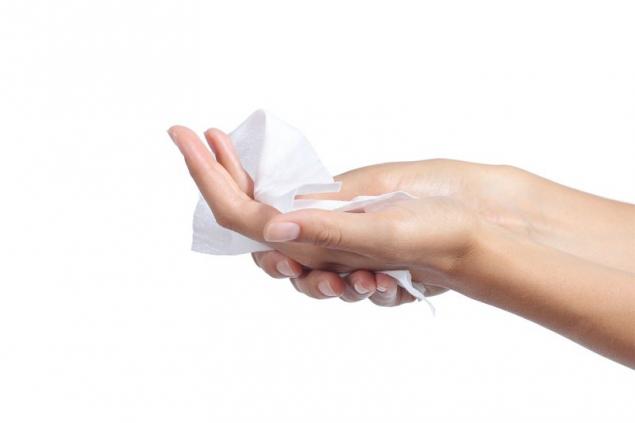
In case your hands are not washed at all, and you need to clean them urgently, use antibacterial gels in conjunction with wet wipes: first remove dirt, then treat the skin.
Ready-made antibacterial hand gels, which are sold in the store, do not always smell pleasant and can irritate the skin. You can prepare such a remedy with your own hands, choosing the right base and flavors to give the liquid a pleasant smell.
You'll need it.
Preparation
5 reasons to give up antibacterial hand gel
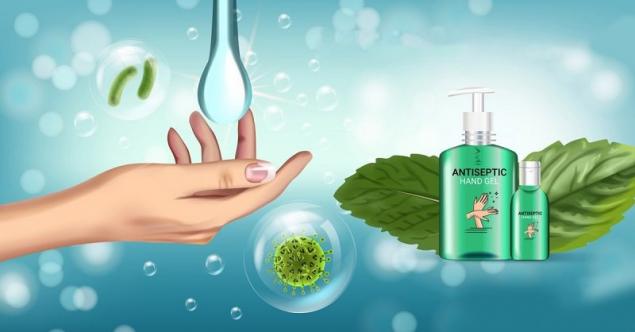
DepositPhotos
If all the arguments about the dangers of antibacterial gels do not convince you, try to use sanitizers with a low alcohol content and odorless, and after applying the cream on your hands.
Try to also find a gel that does not contain triclosan and other dubious substances. It will probably cost more, but health is worth it.
Previously "Site" I have already written about how to cleanse your cell phone of bacteria. Find out why you can not wash every day and what it can do for your health! The arguments are discouraging.

DepositPhotos
For example, about 20% of the world's population are permanent carriers of Staphylococcus aureus. This bacterium can cause a wide range of diseases in humans - from banal acne to deadly pneumonia and meningitis.

DepositPhotos
So if you have more than five people working in your office, one of them could theoretically infect you with a simple handshake. Or take things dear to the heart: studies have shown that there are 18 times more different pathogens on a smartphone screen than on the rim of the toilet.

DepositPhotos
Hand washing is one of the most important hygiene issues. Water and soap are not always available. What to do if you stand in line in a cafe or hold on to a handrail in public transport, and in the supermarket you take a cart, the handle of which has been in a thousand hands in a day?
For those who have no time and nowhere to wash their hands, manufacturers have come up with antibacterial gels, or, what is also called, sanitizers. The main antibacterial component in them is most often alcohol. To reduce its negative effect on the skin, natural oils, aloe extract, vitamin E are added.

According to the latest surveys, 73% of women use hand cleansers. The reason is simple: a bottle of gel easily finds a place in the smallest purse and allows you to observe personal hygiene, without leaving the table in the cafe, the steering wheel, the seat of the aircraft.

DepositPhotos
But most importantly, manufacturers promise that their products will destroy all known microbes on their hands, and even soften the skin. But it's not that rosy. Many of the substances that save us from microbes are harmful.
For example, phenoxyethanol can cause vomiting and diarrhea in infants. Sodium benzoate and other parabens accumulate in the body and can cause severe allergies and even provoke diabetes.
Daily use of funds with chlorhexidine, one of the most gentle antiseptics, can lead to itching, discoloration of the skin, dermatitis, increased sensitivity to ultraviolet light. And even non-toxic ethyl alcohol dries and irritates the skin.

Therefore, for each antiseptic, the standards provide for a concentration that allows him to effectively combat microbes and not harm a person. For example, the alcohol in hand gels should not be more than 68%. The maximum permissible concentration of sodium benzoate is 700-1500 mg / l, parabens - up to 0.4% of the volume of the solution.
Alcohol and antiseptics based on it show the best results when there is no visible dirt on the hands. For example, if you washed your hands and then treated them with an antiseptic. And if the skin remains dust, earth or something greasy, the tool works much worse.

If you wash your hands with soap, hand-drug It won't be necessary. Only professionals need to treat their hands with an antiseptic after washing: doctors and those who work with products.
Everyone else needs to find a sink and regular soap. Water and foam will wash away both bacteria and all sorts of pollution such as metal particles, dust or toxic substances, against which antiseptics are powerless.

In case your hands are not washed at all, and you need to clean them urgently, use antibacterial gels in conjunction with wet wipes: first remove dirt, then treat the skin.
Ready-made antibacterial hand gels, which are sold in the store, do not always smell pleasant and can irritate the skin. You can prepare such a remedy with your own hands, choosing the right base and flavors to give the liquid a pleasant smell.
You'll need it.
- 160 ml of medical alcohol
- 80g aloe vera gel
- mixer
- essential oils
- stirrupper
- bottle
Preparation
- Prepare a clean bowl, pour medical alcohol into it.
- In the same container, add aloe vera gel - it will give the finished product a thick consistency, and also reduce the aggressive effect of pure alcohol on the skin of the hands and protect them from drying.
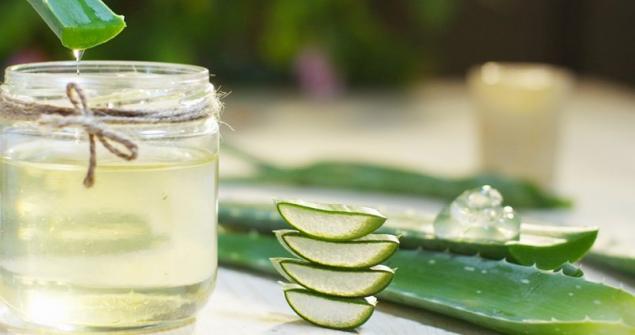
- Add about 10 drops of one or more essential oils. For antibacterial gel, oils that have antimicrobial properties are ideal: mint oil, cinnamon, eucalyptus, thyme, cloves, lavender, rosemary.
- Carefully mix all the ingredients with a spatula. In the end, you should get a thick homogeneous mixture without lumps.
- Take a clean plastic bottle in which you will store the product. It is best to use a container with a dispenser or narrow neck so that it is convenient to apply the gel on your hands.
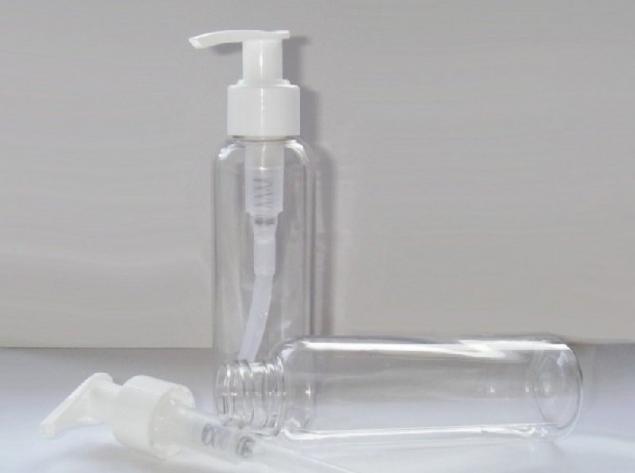
- Unscrew the dispenser or lid, insert a funnel into the neck, gently pour the liquid into the bottle. All right, fragrant gel ready to use. Perhaps after some time, some of the components will settle to the bottom, in which case just shake the bottle several times.
5 reasons to give up antibacterial hand gel
- Antibacterial hand gels negatively affect your skin
If you use a traditional alcohol-based antiseptic hand gel, the skin of your hands becomes more sensitive. This is due to the fact that alcohol is an irritant to the skin, destroying the hydrolipid film and slowing down the natural production of fat, and therefore making the skin dry and flaky. Over time, the use of an antiseptic gel can lead to skin aging because dry skin is more easily damaged and more prone to wrinkles. If you can not do without this gel, use after it lotion or hand cream.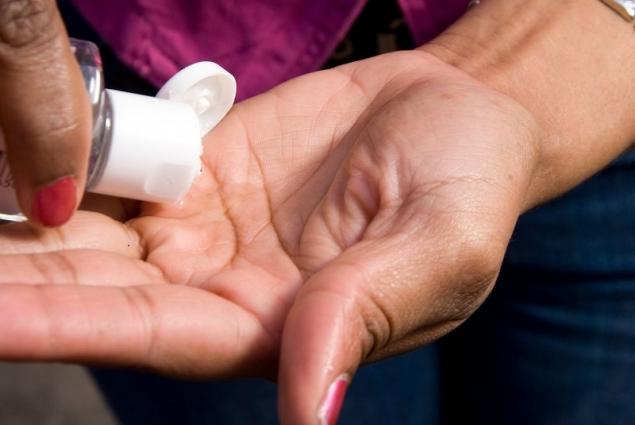
- Disinfectants lead to the appearance of superbugs
Even if there is no alcohol in the gel you are using, it probably contains triclosan, one of the most powerful antibacterial agents. However, the problem with using such antibiotics is that when we resort to them too often, there is a danger of superbugs resistant to conventional antibiotics. For example, one study found that long-term use of bactericidal agents like triclosan can lead to the mass spread of resistant bacteria that are extremely dangerous to society. In 2013 alone, according to the US Centers for Disease Control and Prevention, superbugs claimed 23,000 lives.
Another study showed that the use of triclosan negatively affects the immune system, making a person more vulnerable even to traditional diseases such as the common cold.
The U.S. Food and Drug Administration (FDA) has banned the use of triclosan in over-the-counter antiseptics. There is insufficient data on its safety.
Of course, using a hand gel based on triclosan once or twice a day is unlikely to lead to the development of superbugs, but other negative consequences are not excluded.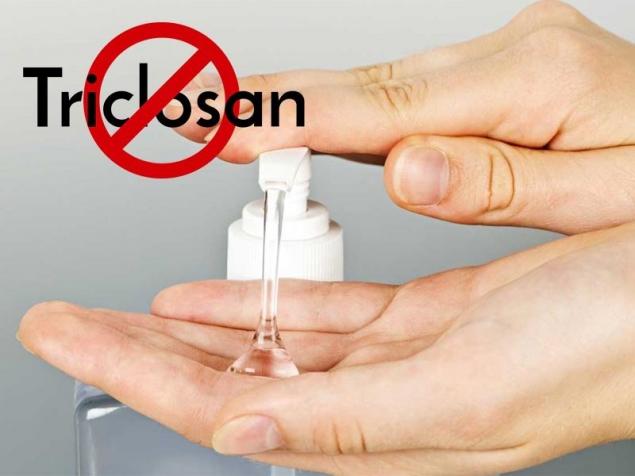
- The sanitizer may contain unspecified and possibly dangerous substances
The main ingredient in hand sanitizer is usually alcohol or triclosan. Both are designed to kill microbes. The composition of the sanitizer may include other harmful substances. Especially if it has a smell. Phthalates are used to create synthetic fragrances, which, in the worst case scenario, can disrupt hormonal balance. You should also pay attention to the presence in the composition of parabens - preservatives that extend the shelf life.
All these substances are absorbed into the skin and enter the body every time you use a sanitizer. In addition, manufacturers are not required to report the exact composition and indicate what is used to flavor the gels. Therefore, to minimize risk, try to use odorless sanitizers. - When using gels, the absorption of bisphenol A increases
Bisphenol A enters the body from plastic products, food containers, bottles, dental fillings and even house dust. This substance negatively affects the human endocrine system, causing a problem with hormones. Researchers from the University of Missouri found that if you touch plastic items after using a sanitizer, bisphenol A is absorbed into your skin 100 times more actively.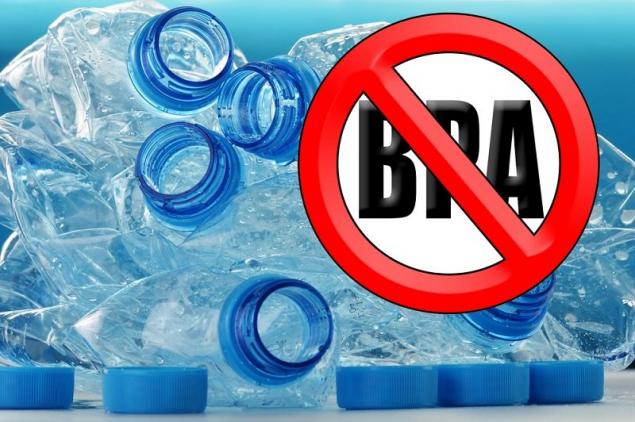
DepositPhotos - Antiseptic hand gels are not so effective
Although antibacterial gels do kill the germs present on your hands, they also destroy the beneficial bacteria and the fat needed for the skin, which ultimately reduces the level of defense of the body. Experts from the University of Ottawa (Canada) found that the vaunted antiseptic hand gels, allegedly killing 99% of bacteria, very far from this ideal. It is good if at least some gel gets to 60%. Most tested gels from different brands intercept only 40% of microorganisms.
Microbiologist Ron Cutler, from Queen Mary University of London, says that gels are very bad at washing away food debris from the skin: “You need to somehow remove all traces of dirt before you start washing your skin with a gel for it to work.”
Recent studies have shown that gels do not protect against infectious gastroenteritis or viral intestinal infections like norovirus. In fact, even the most powerful hand-gelAn alcohol-based product ceases to act just a few seconds after contact with the skin.

DepositPhotos
If all the arguments about the dangers of antibacterial gels do not convince you, try to use sanitizers with a low alcohol content and odorless, and after applying the cream on your hands.
Try to also find a gel that does not contain triclosan and other dubious substances. It will probably cost more, but health is worth it.
Previously "Site" I have already written about how to cleanse your cell phone of bacteria. Find out why you can not wash every day and what it can do for your health! The arguments are discouraging.
Social networks (Facebook, Instagram, Odnoklassniki, Vkontakte) are listening to us! If you use these apps, immediately...
Pavel Globa: “In May, every zodiac sign can succeed only if...”








